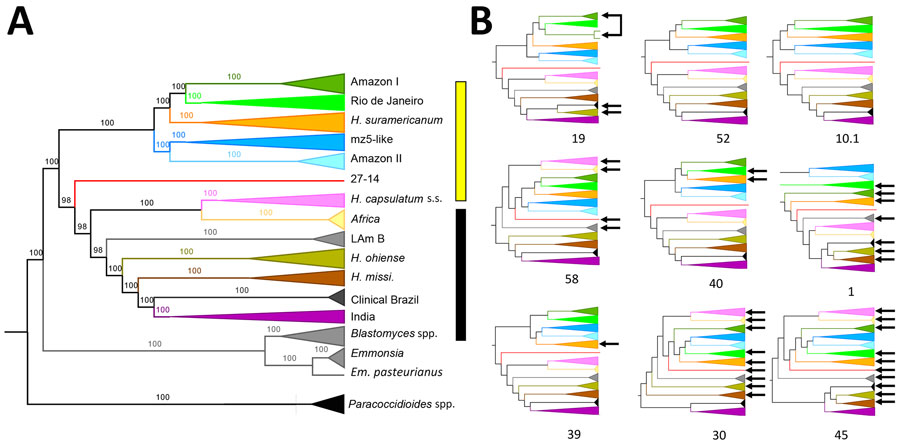Volume 31, Number 6—June 2025
Research
High Genetic Diversity of Histoplasma in the Amazon Basin, 2006–2017
Figure 1

Figure 1. Phylogenetic analyses showing a high genetic diversity of Histoplasma in the Amazon basin, 2006–2017. A) Whole-genome concatenated phylogenetic tree with markers shows the existence of >12 monophyletic groups. Yellow bar, the Latin American clade; black bar, the global clade. The numbers above each bar represent the concordance value. B) The 9 largest supercontigs showing largely consistent topologies. Arrows show lineages with positions that differ from the inferred species tree. The identification numbers of each supercontig are below each graph.
1These first authors contributed equally to this article.
Page created: May 01, 2025
Page updated: May 27, 2025
Page reviewed: May 27, 2025
The conclusions, findings, and opinions expressed by authors contributing to this journal do not necessarily reflect the official position of the U.S. Department of Health and Human Services, the Public Health Service, the Centers for Disease Control and Prevention, or the authors' affiliated institutions. Use of trade names is for identification only and does not imply endorsement by any of the groups named above.